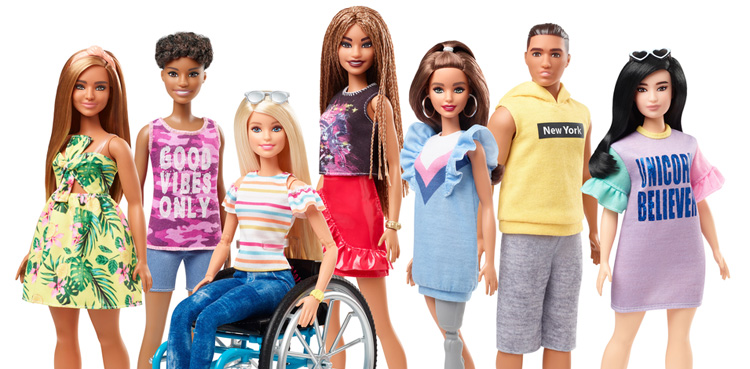The first-ever type 1 diabetes Barbie doll has officially been launched, bringing much-needed representation for children living with the condition.
According to USA Today, this new Barbie doll has been created in partnership with Breakthrough T1D, a global charity that supports people living with type 1 diabetes.
The doll features a continuous glucose monitor (CGM) on her arm, fixed in place with a heart-shaped piece of pink medical tape. She also wears an insulin pump and carries a smartphone with a CGM app to track her blood sugar levels throughout the day.
Along with her high-tech diabetes gear, the Barbie doll with type 1 diabetes also carries a handy bag for snacks or other essentials she might need when she’s out and about.
Read More: New Barbie doll with Down’s syndrome unveiled
Type 1 diabetes is a lifelong condition that usually starts in childhood. It happens when the body’s immune system attacks and destroys the insulin-making cells in the pancreas. People with the condition need to check their blood sugar and take insulin every day.
Krista Berger, senior vice-president of Barbie and global head of dolls at Mattel, said this release is “an important step in our commitment to inclusivity and representation”.
She added, “Barbie helps shape children’s early perceptions of the world, and by reflecting medical conditions like T1D, we ensure more kids can see themselves in the stories they imagine and the dolls they love.”
This is the first time Mattel has introduced a Barbie with type 1 diabetes, though in recent years, it has expanded its range to include dolls with various disabilities and medical conditions.
The Barbie Fashionistas line now includes dolls with hearing aids, wheelchairs, prosthetic limbs, vitiligo, and even Down’s syndrome.
Other toy brands are also making efforts to represent a wider range of children. For example, Lottie has dolls with autism and Down’s syndrome, and Lego offers minifigures with both visible and non-visible disabilities.
Arjun Panesar, CEO of diabetes.co.uk, welcomed the launch, saying: “Representation matters, especially in childhood. Seeing a Barbie doll with type 1 diabetes helps normalise the condition, reduce stigma and show children that they are not alone.”
The first-ever doll with type 1 diabetes is now part of a growing effort to help more children feel seen, supported and confident while living with the condition.


Leave a Comment